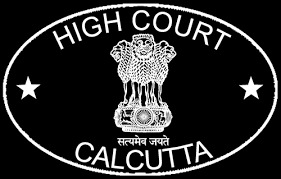V.K. Jhanji, J.@mdashThis order of mine will dispose of Civil Revisions No. 3688 to 3703 of 1992 as common question of law and facts is involved in all these petitions.
2. In all these writ petitions petitioners are the employees of the Punjab Roadways, Hoshiarpur. The General Manager, vide separate orders passed in the case of each of the petitioners stopped the annual increment(s) with cumulative effect. Order passed in all the cases was similarly worded. These orders stopping annual increments with cumulative effect were challenged by the petitioners; in applications u/s 15 of the Payment of Wages Act, 1936 (hereinafter referred to as the Act) before the Senior Sub Judge, Hoshiarpur that the orders were not passed for good and sufficient cause. The applications were opposed by the General Manager. Parties led their evidence and on consideration of the evidence, the orders were set aside as the Senior Sub Judge was of the view that the orders were non-speaking and sketchy. Against these orders, appeals were preferred before the District Judge, Hoshiarpur, who vide orders dated 28.8.1986 dismissed the appeal with costs. Since the department did not refund the amount, execution applications were filed before the Senior Sub Judge, Hoshiarpur with a prayer that the amount he recovered by sale of the property of the respondent. Application were contested on the ground that the senior Sub Judge had no jurisdiction to entertain and try the applications as the Senior Sub Judges were appointed authorities under the Act only with effect from 5,1.1988. Before the Senior Sub Judge, notifications No. 7781-1-37-8/20 (Industries and Labour Department) dated 2.2.1937 and No. 905-6-2535 dated 18.2.1924 were produced. These notifications are reproduced hereunder for ready reference-
Notification No. 7781-1-37-8/20 (Industries and Labour Department) dated 2.2.1937:- "In exercise of the powers conferred by Sub-section (1) of Section 15 of the Payment of Wages Act, 1936 read with Section 22 of the General Clauses Act, 1897 the Governor in council is pleased to appoint the Commissioners for workmen compensation in the Punjab, Notified in Punjab Govt. Notification No. 905-6-2536 dated 18th February as the authority to hear and decide within their Jurisdiction all claims arising out of deduction from the wages or delay in payment of wages, of the persons employed or paid within their jurisdiction."
Notification No. 905-6-2535 dated 18.2.1924:-
"In exercise of the powers conferred by Section 20 of the workmen''s compensation Act, 1923 read with Section 22 of the General Clauses, 1897 the Governor in Council is pleased to appoint for each of the districts of Ambala, Ferozepur, Lahore, Amritsar, Rawalpindi, Lyallpur and Multan the Senior Sub Judge, and for each of the remaining districts of Punjab, the District Magistrates to be the Commissioner of Workmen''s Compensation under the said Act."
3. On the basis of these two notifications, it was submitted before the Senior Sub Judge that all the senior Sub Judges continue to exercise such power as an authority under the Act by virtue of these notifications and thus order passed by the Senior Sub Judge was not nullity as contended by the respondent. On consideration of these notifications, the Senior Sub Judge concluded that the order was passed by the Senior Sub Judge while he was not conferred with the power under the Act and as such the application for execution are not maintainable. The execution applications thus were dismissed. The order dismissing the execution applications is being impugned in these civil revisions.
4. Learned counsel for the petitioner contended that on the date the order was passed, the Senior Sub Judge was competent to pass the order as authority under the Act. He further contended that assuming for the sake of argument that the Senior Sub Judge was not conferred with the power of Authority under the Act, even then applying the de facto doctrine, the orders are valid and binding as if they were the acts of the Officer de jure. In support of his submission, he relied upon the case of
5. Having heard the learned counsel for the parties at some length. I am of the view that there is no merit in these contentions. The State of Punjab vide notification No. S.O. 45/C.A. 4/36/S. 15/72 dated 22nd November, 1972 appointed each Sub-Divisional Magistrate in the State of Punjab to be the authority under the Payment of Wages Act. The notification is reproduced as under-
"In supersession of Punjab Government, Labour Department Notification No. 3095-C-Lab. 57/43462 dated the 18th May, 1957, and No. C.A.IV/36/S-15, dated the 27th April 1968 and in exercise of the powers conferred by Sub-section (1) of Section 15 of the Payment of Wages Act, 1936 (IV of 1936), the Governor of Punjab is pleased to appoint each Sub-Divisional Magistrate in the State of Punjab to be the Authority to hear and decide claims arising out of deductions from wages, or delay in payment of wages of persons employed or paid, including all matters incidental to such claims under the said Act, within the area of his respective jurisdiction."
6. This notification was superseded by notification No. S.O. 1/C.A.4/36/S 15/88 dated the 5th January 1988 which reads as under:-
" In supersession of all the previous notifications issued in this behalf and in exercise of the powers conferred by Sub-section (1) of Section 15 of the Payment of Wages Act, 1936 (Central Act No. IV of 1936), the President of India is pleased to appoint the Senior Sub Judges in each district of the State of Punjab to be the authorities to hear and decide, within the areas of their respective jurisdiction, all claims arising out of deductions from the wages, or delay in payment of wages of persons employed or paid in those areas, including all matters incidental to such claims."
7. It was under the notification dated 5th of January 1988 that the Senior Sub Judges in each district in the State were appointed to be the authorities under the Payment of Wages Act to hear and decide, within the areas of their respective jurisdiction, all claims arising out of deductions from wages, or delay in payment of wages of persons employed or paid in those areas. It was thus only with effect from 5th of January, 1988 that the Senior Sub Judges were conferred with powers under the Act. Admittedly, applications in these cases were decided before that date and on that account the Executing Court rightly refused to execute the order for want of jurisdiction. It is true that any decision given on application filed under Sub-section (2) of Section 15 of the Act is appealable before the District Judge as provided u/s 17 of the Act and in the present case, appeals were preferred before the District Judge but a decision in appeal cannot be taken to be a decision by the authority competent to hear application under Sub-section (2) of Section 15 of the Act.
8. In this view of the matter, I am of the view that the orders of the Senior Sub Judges were without jurisdiction and cannot be cured merely because the respondents had filed appeals before the District Judge and had submitted to the jurisdiction of the Court. The Court executing the order can always refuse to execute an order which was passed by an authority lacking inherent jurisdiction. The observation of the Supreme Court in para 15 of its judgment in Gokaraju Rungaraju''s case (supra) as referred to by the counsel for the petitioner, has no application to the facts of the present case. The present case is not one where appointment of Senior Sub Judge as authority to decide application under Sub-section (2) of Section 15 of the Act was later found to be defective. The present case is the one where the Judge lacked inherent jurisdiction to decide the application. The orders of the Senior Sub Judge were rightly declared to be nullity.
9. Faced with this situation learned counsel for the petitioner contended that it was under a bona fide mistake that the petitioners had been litigating before the Senior Sub Judge and thereafter the orders of the Senior Sub Judge were successfully maintained in appeals. He thus contended that in case the orders are declared nullity, petitioners would be left with no remedy at all as the remedy, if any, would have become barred by time.
10. I am in agreement with the counsel that the petitioners, under a mistaken belief, had been litigating in a person forum for want of proper guidance and advice. The respondents never took any objection with regard to the jurisdiction which the applications were pending before the Senior Sub Judge or even in appeals which the respondents had filed. It was only in execution that such an objection was raised. I am sure that if fresh application are moved under Sub-section (2) of Section 15 of the Act with a prayer to condone the delay the Authority deciding the applications, shall take into consideration all the circumstances leading to delay in filing of the applications.
11. For the reasons recorded above, civil revisions No. 3688 to 3703 of 1992 are dismissed wi th no order as to costs.

